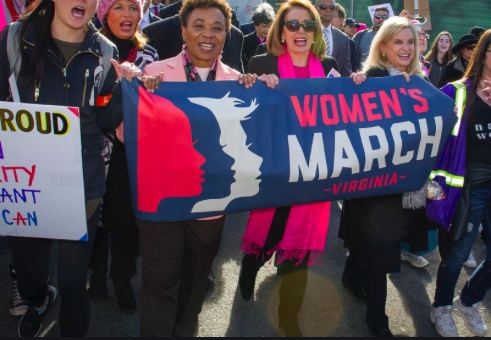
Do you remember clear back to 2016 and the Women’s March?
It was a series of street protests against Donald Trump, which fell apart, with astonishing celerity, and I don’t think most people know why.
It fell apart because the Women’s March was started predominantly by “middle-class white women,” who, it was decided, no matter their actual thoughts and political convictions (a product of the human brain, let us note), were in fact part of the very problem that marchers were marching against.
Thus the Women’s March looked for and found “women of color” to lead and represent it … only to discover that their new leaders had a history of supporting anti-Semitic conspiracy theories.
This is not news, I know. It is history. I mention it now only because it captures the self-defeating and insoluble problem inherent in all forms of identity politics and so-called social justice, and it illustrates with breathtaking clarity precisely why identity politics cannot work.
Like all other forms of tribalism, identity politics by definition consists of factions. In the case of the Women’s March, the factional process went something like this: the common cause initially was among all women. In less than a year, however, it splintered to the grievances that one particular faction of women had against another faction of women and then another, so that what started out as a unified Women’s March ended in strife, bitter infighting, and then total implosion. Given the degree to which participants (organizers most especially) bought into the very premise — that humans are fundamentally defined by something other than our brains — it could not have had any other outcome.
This exact same phenomena was also present at a recent Democratic candidates’ LGBTQ Forum, wherein Pete Buttigieg was interrupted by demonstrators who found it deeply insulting to the transgendered community that a gay man be permitted to ask a question. Can you guess what happened next?
A transgender child was interrupted because letting a transgender child ask questions was an insult to black transwomen.
“How,” one commentator wisely asked, “can you have an LGBTQ movement, when the L, the G, the B, the T, and the Q are so busy venting their resentment at each other?”
This, I say again, follows naturally from the foundational premise of the movement: namely, that humans are not fundamentally defined (and united) by the capacity to think and reason — which is to say, by means of our individual minds — but by the group and category we fall into, often whether we like it or not, and whether we want it or not.
This is one of the many insurmountable ramifications of defining things by means of non-essentials: the act of declaring your support for one faction automatically pits you against every other faction — all of which factions are in a mad dash for authority and even power, thereby by undermining, with mathematical certitude, their entire case and cause.
In addition to which, by the very nature of gangs and tribes and groups, it is child’s play to seize control of these groups — by propagandists, dogmatists, firebrands, strong-arms, whathaveyou, whose members then become the means by which people sell off their natural-born freedoms, piecemeal but surely, to those who would play upon their resentments. For this, all of us suffer.
The solution, of course, is painfully simple — and will be rejected because it is precisely that: too painfully self-evident and too radical:
Simply recognize the fact that the concept of rights is universal, and as such it applies to every individual, so that all humanity — no matter the color, class, creed, sex, gender, or any other non-essential — is united by this principle: we are fundamentally defined by our reasoning minds which are inherent to all of us as human beings. The individual freedom of each is merely an elaboration of this. Only when this is formally recognized can the natural peace and goodwill that exists among humans be at last restored.
